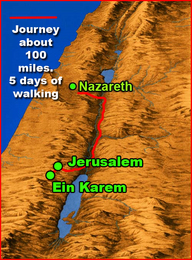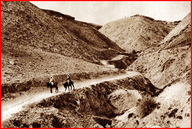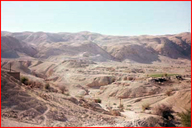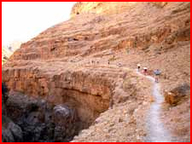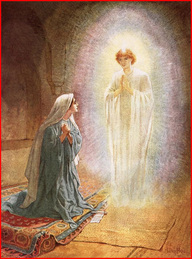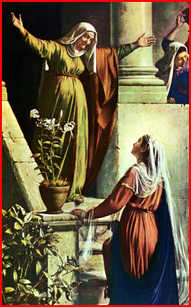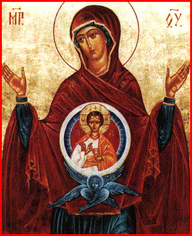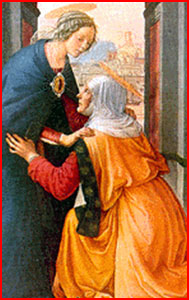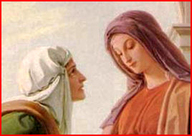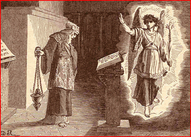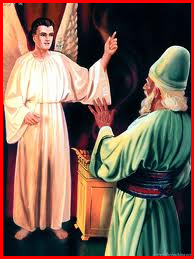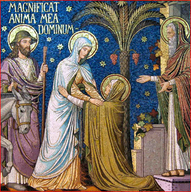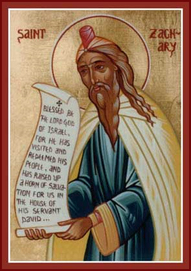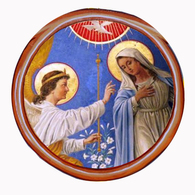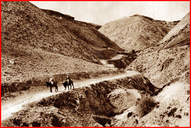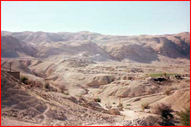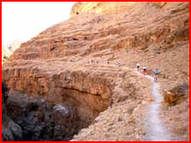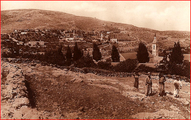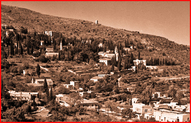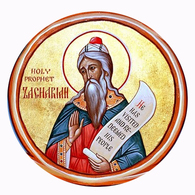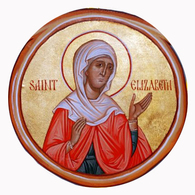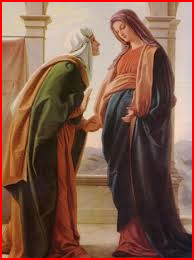| Devotion to Our Lady |
|
- Homepage
-
Daily Thoughts
- 2023 October Daily Thoughts
- Daily Thoughts Lent 2020
- Daily Thoughts for Advent 2019
- Daily Thoughts for October 2019
- Daily Thoughts for September 2019
- Daily Thoughts for August 2019
- Daily Thoughts for July
- Daily Thoughts for June
- Daily Thoughts for Easter 2019
- Daily Thoughts for Lent 2019
- Daily Thoughts for Christmas
- Daily Thoughts Easter 2022
- Sacred Heart
- Holy Ghost
-
Spiritual Life
- Holy Mass Explained
- First Friday Devotions
- First Saturday Devotions
- The Mercy of God
- Vocations
- The Path Everyone Must Walk >
- Gift of Failure
- Halloween or Hell-O-Ween?
- Ignatian Spiritual Exercises >
- Meditation is Soul-Saving
- Spiritual Communion
- Miraculous Medal
- Enrollment in Miraculous Medal
- St. Benedict Medal
- Holy Water
- Advice on Prayer
- Your Daily Mary
-
Prayers
- September Devotions
- Seven Sorrows of Our Lady
-
Novenas
>
- NV-Help of Christians
- NV-Nativity of Our Lady
- NV-Seven Sorrows
- NV- Sorrowful Heart
- NV-Pope St Pius X
- NV-La Salette
- NV-St Michael Archangel
- NV-Immaculate Heart
- NV-Assumption
- NV-Novena for Fathers
- NV-Novena for Your Mother
- NV-St Raphael Archangel
- NV-Souls in Purgatory
- NV-All Saints Day
- NV-Christ the King
- NV-Divine Motherhood
- NV-Guardian Angels
- NV-Rosary
- NV-Mirac Med
- NV- Imm Conc
- NV - Guadalupe
- NV - Nativity of Jesus
- NV-Epiphany
- NV-OL Good Success
- NV-Lourdes
- NV-St Patrick
- NV-St Joseph
- NV-Annunciation
- NV-St Louis de Montfort
- NV-OL Good Counsel
- NV-Last Supper
- NV-Passion
- NV-Pentecost
- NV-Ascension
- NV-Sacred Heart
- NV-Sacred Heart & Perpetual Help
- NV-Corpus Christi
- NV-OL of Perpetual Help
- NV-Queenship BVM
- NV-OL of Mount Carmel
- NV-St Mary Magdalen
- NV- Im Hrt
- August Devotions to IHM
- Immaculate Heart of Mary
- Litany of Dependence
- Prayers to St Mary Magdalen
- Prayers in Times of Sickness Disease & Danger
- Holy Souls in Purgatory
- Meditations on the Litany of Our Lady
- Special Feast Days
- Prayers to Mary (Mon-Sun)
- Litanies to Our Lady >
- Various & Special Needs
- Our Lady of the Rosary
- Our Lady of Mt. Carmel
- Our Lady of Perpetual Help
- Our Lady of Guadalupe
- Other titles of Our Lady
-
Rosary
- Downloads
- Consecration
- Easter Season
-
Holy Week
- Last Seven Words of Jesus >
- Characters of Passion >
- The Last Days of Christ
- Before Palm Sunday
- Palm Sunday
- Monday in Holy Week
- Tuesday in Holy Week
- Wednesday in Holy Week
- Holy Thursday (Last Supper)
- Holy Thursday (Agony & Arrest)
- Night Vigil with Christ
- Good Friday (Pilate & Herod)
- Good Friday (Way of Cross & Crucifixion)
- Saturday in Holy Week
-
Lent
- Ideas for Lent
- Daily Lenten Planner
- Daily Lenten Liturgy
- From Cold to Hot
- Lent with Aquinas
- Lent with Dom Gueranger
- Virtues for Lent
- History of Penance
- How Expensive is Sin?
- Confession of Sins
- Letter to Friends of the Cross
- Sermons for Lent
- Stations of the Cross >
- Lenten Prayers
- 7 Penitential Psalms
- Lenten Psalms SUN
- Lenten Psalms MON
- Lenten Psalms TUE
- Lenten Psalms WED
- Lenten Psalms THU
- Lenten Psalms FRI
- Lenten Psalms SAT
- Lenten Laughs
- Septuagesima
-
Christmas
- Epiphany Explained
- Suggestions for Christmas
- Food For Thought
- Christmas with Aquinas
- Christmas with Dom Gueranger
- Christmas Prayers
- Candles & Candlemas
- Christmas Sermons
- Christmas Prayers SUN
- Christmas Prayers MON
- Christmas Prayers TUE
- Christmas Prayers WED
- Christmas Prayers THU
- Christmas Prayers FRI
- Christmas Prayers SAT
- Twelve Days of Christmas >
-
Advent Journey
- Purgatory
- Christ the King
- Legion of Mary
- Scapular
-
Saints
-
Martyrs for the Faith
>
- Your Daily Martyr >
- All 365 Days of Martyrs
- Cristeros
- St Valentine & Valentine's Day
- Martyrs--Thomas Becket
- Martyrs--John the Apostle
- Holy Machabees
- Age of Martyrdom
- Carmelites of Compiegne
- Martyrs--Peter & Paul
- Martyrs--John the Baptist
- Martyrs--Andrew
- Martyrs--James the Great
- Martyrs--North American
- Martyrs--Seven Holy Sleepers
- Martyrs--Afra
- School of Martyrdom
- Martyrs--Christina
- Desert Saints >
- Saints for Sinners >
- Saints of Mary >
- History of All Saints Day
-
Martyrs for the Faith
>
- Precious Blood
- Synod 2023
-
Catechism
- Catechism Lesson 1
- Catechism Lesson 2
- Catechism Lesson 3
- Catechism Lesson 4
- Catechism Lesson 5
- Catechism Lesson 6
- Catechism Lesson 7
- Catechism Lesson 8
- Catechism Lesson 9
- Catechism Lesson 10
- Catechism Lesson 11
- Catechism Lesson 12
- Catechism Lesson 13
- Catechism Lesson 14
- Catechism Lesson 15
- Catechism Lesson 16
- Catechism Lesson 17
- Catechism Lesson 18
- Catechism Lesson 19
- Catechism Lesson 20
- Catechism Lesson 21
- Catechism Lesson 22
- Bible Study
-
Calendar
- Miracles
- Apparitions
- Shrines
- Prophecies
- Angels Homepage
- Hell
-
Church Crisis
- Conspiracy Theories
- Amazon Synod 2019 >
- Liberalism & Modernism
- Modernism--Encyclical Pascendi
- Modernism & Children
- Modernism--Documents
- The Francis Pages
- Church Enemies on Francis
- Francis Quotes
- Amoris Laetitia Critique
- Danger of Ignorance (Pius X)
- Restore all In Christ (Pius X)
- Catholic Action (Pius X)
- Another TITANIC Disaster?
- The "Errors of Russia"
- CRISIS PRAYERS
- Election Novena 2024
- The Anger Room
- War Zone
- Life of Mary
- Spiritual Gym
- Stupidity
- Coronavirus and Catholicism
- History & Facts
- Books
- Catholic Family
- Children
- Daily Quiz
-
Novena Church & Pope
- Day 01 Church-Pope Novena
- Day 02 Church-Pope Novena
- Day 03 Church-Pope Novena
- Day 04 Church-Pope Novena
- Day 05 Church-Pope Novena
- Day 06 Church-Pope Novena
- Day 07 Church-Pope Novena
- Day 08 Church-Pope Novena
- Day 09 Church-Pope Novena
- Day 10 Church-Pope Novena
- Day 11 Church-Pope Novena
- Day 12 Church-Pope Novena
- Day 13 Church-Pope Novena
- Day 14 Church-Pope Novena
- Day 15 Church-Pope Novena
- Day 16 Church-Pope Novena
- Day 17 Church-Pope Novena
- Day 18 Church-Pope Novena
- Day 19 Church-Pope Novena
- Day 20 Church-Pope Novena
- Day 21 Church-Pope Novena
- Day 22 Church-Pope Novena
- Day 23 Church-Pope Novena
- Day 24 Church-Pope Novena
- Day 25 Church-Pope Novena
- Day 26 Church-Pope Novena
- Day 27 Church-Pope Novena
- Day 28 Church-Pope Novena
- Day 29 Church-Pope Novena
- Day 30 Church-Pope Novena
- Day 31 Church-Pope Novena
- Day 32 Church-Pope Novena
- Day 33 Church-Pope Novena
- Day 34 Church-Pope Novena
- Day 35 Church-Pope Novena
- Day 36 Church-Pope Novena
- Day 37 Church-Pope Novena
- Day 38 Church-Pope Novena
- Day 39 Church-Pope Novena
- Day 40 Church-Pope Novena
- Day 41 Church-Pope Novena
- Day 42 Church-Pope Novena
- Day 43 Church-Pope Novena
- Day 44 Church-Pope Novena
- Day 45 Church-Pope Novena
- Day 46 Church-Pope Novena
- Day 47 Church-Pope Novena
- Day 48 Church-Pope Novena
- Day 49 Church-Pope Novena
- Day 50 Church-Pope Novena
- Day 51 Church-Pope Novena
- Day 52 Church-Pope Novena
- Day 53 Church-Pope Novena
- Day 54 Church-Pope Novena
- Penance Novena
- Daily WeAtheR Forecast
CLICK ON THE ROSARY MYSTERY THAT YOU WANT TO MEDITATE (all links are not yet active)
JOYFUL MYSTERIES | Annunciation | Visitation | Nativity of Jesus | Presentation in the Temple | Finding in the Temple |
SORROWFUL MYSTERIES | Agony in Garden | Scourging at Pillar | Crowning with Thorns | Carrying of Cross | Crucifixion |
GLORIOUS MYSTERIES | Resurrection | Ascension | Descent of Holy Ghost | Assumption of BVM | Coronation of BVM |
CLICK ON THIS LINE TO GO TO THE MEDITATION MAIN PAGE
CLICK ON THIS LINE TO GO TO ROSARY MAIN PAGE
JOYFUL MYSTERIES | Annunciation | Visitation | Nativity of Jesus | Presentation in the Temple | Finding in the Temple |
SORROWFUL MYSTERIES | Agony in Garden | Scourging at Pillar | Crowning with Thorns | Carrying of Cross | Crucifixion |
GLORIOUS MYSTERIES | Resurrection | Ascension | Descent of Holy Ghost | Assumption of BVM | Coronation of BVM |
CLICK ON THIS LINE TO GO TO THE MEDITATION MAIN PAGE
CLICK ON THIS LINE TO GO TO ROSARY MAIN PAGE
THE VISITATION
|
1. The Meditation on the Mystery
2. According to Holy Scripture 3. According to the Mystics |
SEVERAL MEDITATIONS ON THE MYSTERY OF THE VISITATION
THE VISITATION ACCORDING TO HOLY SCRIPTURE (Luke chapter 1)
|
There was in the days of Herod, the king of Judea, a certain priest named Zachary...and his wife was of the daughters of Aaron, and her name Elizabeth. And they were both just before God, walking in all the commandments and justifications of the Lord without blame. And they had no son, for that Elizabeth was barren, and they both were well advanced in years. And it came to pass, when he executed the priestly function in the order of his course before God, according to the custom of the priestly office, it was his lot to offer incense, going into the temple of the Lord. And all the multitude of the people was praying without, at the hour of incense.
And there appeared to him an angel of the Lord, standing on the right side of the alter of incense. Zachary seeing him, was troubled, and fear fell upon him. But the angel said to him: "Fear not, Zachary, for thy prayer is heard; and thy wife Elizabeth shall bear thee a son, and thou shalt call his name John: and thou shalt have joy and gladness, and many shall rejoice in his nativity. For he shall be great before the Lord; and shall drink no wine nor strong drink: and he shall be filled with the Holy Ghost, even from his mother’s womb. And he shall convert many of the children of Israel to the Lord their God. And he shall go before him in the spirit and power of Elias; that he may turn the hearts of the fathers unto the children, and the incredulous to the wisdom of the just, to prepare unto the Lord a perfect people." And Zachary said to the angel: "Whereby shall I know this? For I am an old man, and my wife is advanced in years." And the angel answering, said to him: "I am Gabriel, who stand before God: and am sent to speak to thee, and to bring thee these good tidings. And behold, thou shalt be dumb, and shalt not be able to speak until the day wherein these things shall come to pass, because thou hast not believed my words, which shall be fulfilled in their time." And the people were waiting for Zachary; and they wondered that he tarried so long in the temple. And when he came out, he could not speak to them: and they understood that he had seen a vision in the temple. And he made signs to them, and remained dumb. And it came to pass, after the days of his office were accomplished, he departed to his own house. And after those days, Elizabeth his wife conceived, and hid herself five months, saying: "Thus hath the Lord dealt with me in the days wherein he hath had regard to take away my reproach among men." And in the sixth month, the angel Gabriel was sent from God into a city of Galilee, called Nazareth, to a virgin, espoused to a man whose name was Joseph, of the house of David; and the virgin’s name was Mary. And the angel being come in, said unto her: "Hail, full of grace, the Lord is with thee: blessed art thou among women ... Behold thou shalt conceive in thy womb, and shalt bring forth a son; and thou shalt call his name Jesus. And behold thy cousin Elizabeth, she also hath conceived a son in her old age; and this is the sixth month with her that is called barren: because no word shall be impossible with God." And the angel departed from her. And Mary rising up in those days, went into the hill country with haste into a city of Juda. And she entered into the house of Zachary, and saluted Elizabeth. And it came to pass, that when Elizabeth heard the salutation of Mary, the infant leaped in her womb. And Elizabeth was filled with the Holy Ghost: and she cried out with a loud voice, and said: "Blessed art thou among women, and blessed is the fruit of thy womb. [And whence is this to me, that the mother of my Lord should come to me? For behold as soon as the voice of thy salutation sounded in my ears, the infant in my womb leaped for joy. And blessed art thou that hast believed, because those things shall be accomplished that were spoken to thee by the Lord." And Mary said: "My soul doth magnify the Lord, and my spirit hath rejoiced in God my Saviour. Because He hath regarded the humility of His handmaid; for behold, from henceforth, all generations shall call me blessed. Because He that is mighty, hath done great things to me; and holy is His Name. And His mercy is from generation unto generations, to them that fear Him. He hath shown might in His arm: He hath scattered the proud in the conceit of their heart. He hath put down the mighty from their seat, and hath exalted the humble. He hath filled the hungry with good things; and the rich He hath sent empty away. He hath received Israel His servant, being mindful of His mercy: as He spoke to our fathers, to Abraham and to his seed for ever." And Mary abode with her about three months; and she returned to her own house. Now Elizabeth’ s full time of being delivered was come, and she brought forth a son. And her neighbours and kinsfolks heard that the Lord had shewed his great mercy towards her, and they congratulated with her. And it came to pass, that on the eighth day they came to circumcise the child, and they called him by his father’s name Zachary. And his mother answering, said: "Not so; but he shall be called John." And they said to her: "There is none of thy kindred that is called by this name!" And they made signs to his father, how he would have him called. And demanding a writing table, he wrote, saying: "John is his name!" And they all wondered. And immediately his mouth was opened, and his tongue loosed, and he spoke, blessing God. And fear came upon all their neighbours; and all these things were noised abroad over all the hill country of Judea. And all they that had heard them, laid them up in their heart, saying: "What an one, think ye, shall this child be? For the hand of the Lord was with him!" And Zachary his father was filled with the Holy Ghost; and he prophesied, saying: "Blessed be the Lord God of Israel; because He hath visited and wrought the redemption of His people: and hath raised up an horn of salvation to us, in the house of David His servant: as He spoke by the mouth of His holy prophets, who are from the beginning. salvation from our enemies, and from the hand of all that hate us: to perform mercy to our fathers, and to remember His holy testament, the oath, which He swore to Abraham our father, that He would grant to us, that, being delivered from the hand of our enemies, we may serve Him without fear, in holiness and justice before Him, all our days. And thou, child, shalt be called the prophet of the Highest: for thou shalt go before the face of the Lord to prepare his ways: to give knowledge of salvation to His people, unto the remission of their sins: through the bowels of the mercy of our God, in which the Orient from on high hath visited us: to enlighten them that sit in darkness, and in the shadow of death: to direct our feet into the way of peace." And the child grew, and was strengthened in spirit; and was in the deserts until the day of his manifestation to Israel. |
THE MYSTERY OF THE VISITATION ACCORDING TO THE MYSTICS
(taken from The Mystical City of God by the Venerable Mary of Agreda)
This is a long section—it is recommended that you take only a small section each time you meditate this mystery.
(taken from The Mystical City of God by the Venerable Mary of Agreda)
This is a long section—it is recommended that you take only a small section each time you meditate this mystery.
|
And Mary rising up in those days," says the sacred text, "went into the hill country with haste, into a city of Jude" (Luke 1:39). This rising up of our heavenly Queen signified not only her exterior preparations and setting out from Nazareth on her journey, but it referred to the movement of her spirit and to the divine impulse and command which directed her to arise interiorly from the humble retirement, which she had chosen in her humility. She arose as it were from the feet of the Most High, whose will and pleasure she eagerly sought to fulfill, like the lowliest handmaid, who according to the word of David (Ps. 122:2) keeps her eyes fixed upon the hands of her Mistress, awaiting her commands. Arising at the bidding of the Lord she lovingly hastened to accomplish his most holy will, in procuring without delay the sanctification of the Precursor of the incarnate Word, who was yet held prisoner in the womb of Elizabeth by the bonds of original sin. This was the purpose and object of this journey. Therefore the Princess of Heaven arose and proceeded in diligent haste, as mentioned by the Evangelist Saint Luke.
Leaving behind then the house of her father and forgetting her people (Ps. 44:11), the most chaste spouses, Mary and Joseph, pursued their way to the house of Zacharias in mountainous Judea. It was twenty-six leagues distant from Nazareth, and the greater part of the way was very rough and broken, unfit for such a delicate and tender Maiden. All the convenience at their disposal for the arduous undertaking was an humble beast, on which she began and pursued her journey. Although it was intended solely for her comfort and service, yet Mary, the most humble and unpretentious of all creatures, many times dismounted and asked her spouse Saint Joseph to share with her this commodity and to lighten the difficulties of the way by making use of the beast. Her discreet spouse never accepted this offer; and in order to yield somewhat to the solicitations of the heavenly Lady, he permitted her now and then to walk with him part of the way, whenever it seemed to him that her delicate strength could sustain the exertion without too great fatigue. But soon he would again ask her, with great modesty and reverence, to accept of this slight alleviation and the celestial Queen would they obey and again proceed on her way seated in the saddle. Thus alleviating their fatigue by humble and courteous contentions, the most holy Mary and Saint Joseph continued on their journey, making good use of each single moment. They proceeded alone, without accompaniment of any human creatures; but all the thousand angels, which were set to guard the couch of Solomon, the most holy Mary, attended upon them (Cant. 3:7). Although the angels accompanied them in corporeal form, serving their great Queen and her most holy Son in her womb, they were visible only to Mary. In the company of the angels and of Saint Joseph, the Mother of grace journeyed along, filling the fields and the mountains with the sweetest fragrance of her presence and with the divine praises, in which she unceasingly occupied Herself. Sometimes she conversed with the angels and, alternately with them, sang divine canticles concerning the different mysteries of the Divinity and the works of Creation and of the Incarnation. Thus ever anew the pure heart of the immaculate Lady was inflamed by the ardors of divine love. In all this her spouse Saint Joseph contributed his share by maintaining a discreet silence, and by allowing his beloved spouse to pursue the flights of her spirit; for, lost in highest contemplation, he was favored with some understanding of what was passing within her soul. At other times the two would converse with each other and speak about the salvation of souls and the mercies of the Lord, of the corning of the Redeemer, of the prophecies given to the ancient Fathers concerning Him, and of other mysteries and sacraments of the Most High. Something happened on the way, which caused great wonder in her holy spouse Joseph: he loved his spouse most tenderly with a chaste and holy love, such as had been ordained in Him by the special grace and dispensation of the divine love itself (Cant. 2:4); in addition to this privilege (which was certainly not a small one) the saint was naturally of a most noble and courteous disposition, and his manners were most pleasing and charming; all this produced in him a most discreet and loving solicitude, which was yet increased by the great holiness, which he had seen from the beginning in his spouse and which was ordained by Heaven as the immediate object of all his privileges. Therefore the saint anxiously attended upon most holy Mary and asked her many times, whether she was tired or fatigued, and in what He could serve her on the journey. But as the Queen of Heaven already carried within the virginal chamber the divine fire of the incarnate Word, holy Joseph, without fathoming the real cause, experienced in his soul new reactions, proceeding from the words and conversations of his beloved spouse. He felt himself so inflamed by divine love and imbued with such exalted knowledge of the mysteries touched upon in their conversations, that he was entirely renewed and spiritualized by this burning interior light. The farther they proceeded and the more they conversed about these heavenly things, so much the stronger these affections grew, and he became aware, that it was the words of his spouse, which thus filled his heart with love and inflamed his will with divine ardor. Having pursued their journey four days, the most holy Mary and her spouse arrived at the town of Juda, where Zachary and Elizabeth then lived. This was the special and proper name of the place, where the parents of Saint John lived for a while, and therefore the Evangelist Saint Luke specifies it, calling it Juda, although the commentators have commonly believed that this was not the name of the town in which Elizabeth and Zacharias lived, but simply the name of the province, which was called Juda or Judea; just as for the same reason the mountains south of Jerusalem were called the mountains of Judea. But it was expressly revealed to me that the town was called Juda and that the Evangelist calls it by its proper name; although the learned expositors have understood by this name of Juda the province, in which that town was situated. This confusion arose from the fact that some years after the death of Christ the town Juda was destroyed, and, as the commentators found no trace of such a town, they inferred that Saint Luke meant the province and not a town; thus the great differences of opinion in regard to the place, where most holy Mary visited Elizabeth, are easily explained. It was at this city of Juda and at the house of Zacharias that most holy Mary and Joseph arrived. In order to announce their visit, Saint Joseph hastened ahead of Mary and calling out saluted the inmates of the house, saying: "The Lord be with you and fill your souls with divine grace." Elizabeth was already forewarned, for the Lord himself had informed her in a vision that Mary of Nazareth had departed to visit her. She had also in this vision been made aware that the heavenly Lady was most pleasing in the eyes of the Most High; while the mystery of her being the Mother of God was not revealed to her until the moment, when they both saluted each other in private. But Saint Elizabeth immediately issued forth with a few of her family, in order to welcome most holy Mary, who, as the more humble and younger in years, hastened to salute her cousin, saying: "The Lord be with you, my dearest cousin," and Elizabeth answered: "The same Lord reward you for having come in order to afford me this pleasure." With these words they entered the house of Zacharias and what happened I will relate in the following chapter. After the first salutation of Elizabeth by the most holy Mary, the two cousins retired, as I have said at the end of the preceding chapter. And immediately the Mother of grace saluted anew her cousin saying: "May God save thee, my dearest cousin, and may his divine light communicate to thee grace and life" (Luke 1:40). At the sound of most holy Mary's voice, Saint Elizabeth was filled by the Holy Ghost and so enlightened interiorly, that in one instant she perceived the most exalted mysteries and sacraments. These emotions, and those that at the same time were felt by the child John in the womb of his mother, were caused by the presence of the Word made flesh in the bridal chamber of Mary's womb, for, making use of the voice of Mary as his instrument, He, as Redeemer, began from that place to use the power given to Him by the eternal Father for the salvation and justification of the souls. And since He now operated as man, though as yet of the diminutive size of one conceived eight days before, He assumed, in admirable humility, the form and posture of one praying and beseeching the Father. He asked in earnest prayer for the justification of his future Precursor and obtained it at the hands of the blessed Trinity. This happened before the most holy Mary had put her salutation into words. At the pronunciation of the words mentioned above, God looked upon the child in the womb of Saint Elizabeth, and gave it perfect use of reason, enlightening it with his divine light, in order that he might prepare himself by foreknowledge for the blessings which he was to receive. Together with this preparation he was sanctified from original sin, made an adopted son of God, and filled with the most abundant graces of the Holy Ghost and with the plenitude of all his gifts; his faculties were sanctified, subjected and subordinated to reason, thus verifying in himself what the archangel Gabriel had said to Zacharias; that His son would he filled with the Holy Ghost from the womb of his mother (Luke 1:17). At the same time the fortunate child, looking through the walls of the maternal womb as through clear glass upon the incarnate Word, and assuming a kneeling posture, adored his Redeemer and Creator, whom he beheld in most holy Mary as if enclosed in a chamber made of the purest crystal. This was the movement of jubilation, which was felt by his mother Elizabeth as coming from the infant in her womb (Luke 1:44). Many other acts of virtue the child John performed during this interview, exercising faith, hope, charity, worship, gratitude, humility, devotion and all the other virtues possible to him there. From that moment he began to merit and grow in sanctity, without ever losing it and without ever ceasing to exercise it with all the vigor of grace. Saint Elizabeth was instructed at the same time in the mystery of the Incarnation, the sanctification of her own son and the sacramental purpose of this new wonder. She also became aware of the virginal purity and of the dignity of the most holy Mary. On this occasion, the heavenly Queen, being absorbed in the vision of the Divinity and of the mysteries operated by it through her most holy Son, became entirely godlike, filled with the clear light of the divine gifts which she participated; and thus filled with majesty Saint Elizabeth saw her. Filled with admiration at what she saw and heard in regard to these divine mysteries, Saint Elizabeth was wrapt in the joy of the Holy Ghost; and, looking upon the Queen of the world and what was contained in her, she burst forth in loud voice of praise, pronouncing the words reported to us by Saint Luke: "Blessed are Thou among women and blessed is the fruit of thy womb. And whence is this to me, that the Mother of my Lord should come to me? For behold as soon as the voice of thy salutation sounded in my ears, the infant in my womb leaped for joy, and blessed art Thou, that has believed, because those things shall be accomplished, that were spoken to Thee by the Lord." In these prophetic words Saint Elizabeth rehearsed the noble privileges of most holy Mary, perceiving by the divine light what the power of the Lord had done in her, what He now performed, and what He was to accomplish through her in time to come. All this also the child John perceived and understood, while listening to the words of his mother; for she was enlightened for the purpose of his sanctification, and since he could not from his place in the womb bless and thank her by word of mouth, she, both for herself and for her son, extolled the most holy Mary as being the instrument of their good fortune. These words of praise, pronounced by Saint Elizabeth were referred by the Mother of wisdom and humility to the Creator; and in the sweetest and softest voice she intoned the Magnificat as recorded by Saint Luke (Ch. 1:46-55). 46. My soul Both magnify the Lord; 47. And my spirit hath rejoiced in God my Saviour. 48. Because He hath regarded the humility of his handmaid; for behold from henceforth all generations shall call me blessed. 49. Because He that is mighty hath done great things to me; and holy is his name. 50. And his mercy is from generation unto generation to them that fear Him. 51. He hath showed might in his arm; He bath scattered the proud in the conceit of their heart. 52. He bath put down the mighty from their seat and bath exalted the humble. 53. He bath filled the hungry with good things; and the rich He hath sent empty away. 54. He bath received Israel, his servant, being mindful of his mercy; 55. As He spoke to our fathers, to Abraham and his seed forever." |
Just as Saint Elizabeth was the first one who heard this sweet canticle from the mouth of most holy Mary, so she was also the first one who understood it and, by means of her infused knowledge, commented upon it. She penetrated some of the great mysteries, which its Authoress expressed therein in so few sentences. The soul of most holy Mary magnified the Lord for the excellence of his infinite Essence; to Him she referred and yielded all glory and praise (I Tim. 1:17), both for the beginning and the accomplishment of her works. She knew and confessed that in God alone every creature should glory and rejoice, since He alone is their entire happiness and salvation (II Cor. 10:17). She confessed also the equity and magnificence of the Most High in attending to the humble and in conferring upon them his abundant spirit of divine love (Ps. 137:6). She saw how worthy of mortals it is to perceive, understand and ponder the gifts that were conferred on the humility of her, whom all nations were to call blessed, and how all the humble ones, each one according to his degree, could share the same good fortune. By one word also she expressed all the mercies, benefits and blessings, which the Almighty showered upon her in his holy and wonderful name; for she calls them altogether "great things" since there was nothing small about anything that referred to this great Queen and Lady.
And as the mercies of the Most High overflowed from Mary's plenitude to the whole human race, and as she was the portal of Heaven, through which they issued and continue to issue, and through which we are to enter into the participation of the Divinity; therefore she confessed, that the mercy of the Lord in regard to her is spread out over all the generations, communicating itself to them that fear Him. And just as the infinite mercies raise up the humble and seek out those that fear God; so also the powerful arm of divine justice scatters and destroys those who are proud in the mind of their heart, and hurls them from their thrones in order to set in their place the poor and lowly. This justice of the Lord was exercised in wonderful splendor and glory upon the chief of all the proud, Lucifer and his followers, when the almighty arm of God scattered and hurled them (because they themselves precipitated themselves) from their exalted seats which befitted their angelic natures and their graces, and which they occupied according to the original (Isaias 14; Apoc. 12) decree of the divine love. For by it He intended that all should be blessed (I Tim. 2:4) while they, in trying to ascend in their vain pride to positions, which they neither could attain nor should aspire to, on the contrary cast themselves from those which they occupied (Isaias 14:13).
When it was time to come forth from their retirement, Saint Elizabeth offered herself and her whole family and all her house for the service of the Queen of Heaven. She asked her to accept, as a quiet retreat, the room which she herself was accustomed to use for her prayers, and which was much retired and accommodated to that purpose. The heavenly Princess ac cepted the chamber with humble thanks, and made use of it for recollecting Herself and sleeping therein, and no one ever entered it, except the two cousins. As for the rest she offered to serve and assist Elizabeth as a handmaid, for she said, that this was the purpose of visiting her and consoling her. O what friendship is so true, so sweet and inseparable, as that which is formed by the great bond of the divine love! How admirable is the Lord in manifesting this great sacrament of the Incarnation to three women before He would make it known to any one else in the human race! For the first was Saint Anne, as I have said in its place; the second one was her Daughter and the Mother of the Word, most holy Mary; the third one was Saint Elizabeth, and conjointly with her, her son, for he being yet in the womb of his mother, cannot be considered as distinct from her. Thus "the foolishness of God is wiser than men," as Saint Paul says.
The most holy Mary and Elizabeth came forth from their retirement at nightfall, having passed a long time together; and the Queen saw Zacharias standing before her in his muteness, and she asked him for his blessing as from a priest of the Lord, which the saint also gave to her. Yet, although she tenderly pitied him for his affliction, she did not exert her power to cure him, because she knew the mysterious occasion of his dumbness; yet she offered a prayer for him. Saint Elizabeth, who already knew the good fortune of the most chaste spouse Joseph, although he himself as yet was not aware of it, entertained and served him with great reverence and highest esteem. After staying three days in the house of Zacharias, however, he asked permission of his heavenly spouse Mary to return to Nazareth and leave her in the company of Saint Elizabeth in order to assist her in her pregnancy. The holy husband left them with the understanding that he was to return in order to accompany the Queen home as soon as they should give him notice; Saint Elizabeth offered him some presents to take home with him; but he would take only a small part of them, yielding only to their earnest solicitations, for this man of God was not only a lover of poverty, but was possessed of a magnanimous and noble heart. Therewith he pursued his way back to Nazareth, taking along with him the little beast of burden, which they had brought with them. At home, in the absence of his spouse, he was served by a neighboring woman and cousin of his, who, also when most holy Mary was at home, was wont to come and go on the necessary errands outside of the house.
In conformity with this instruction and new mandate of the Most High, the Princess of Heaven ordered all her occupations in the house of her cousin Elizabeth. She rose up at midnight in accordance with her former custom, spending the hours in the continued contemplation of the divine mysteries and giving to waking and sleep the time, which most perfectly and exactly agreed with the natural state and conditions of her body. In labor and repose she continued to receive new favors, illuminations, exaltation and caresses of the Lord. During these three months she had many visions of the Divinity, mostly abstractive in kind. More frequent still were the visions of the most holy humanity of the Word in its hypostatic union; for her virginal womb, in which she bore Him, served her as her continual altar and sanctuary. She beheld the daily growth of that sacred body. By this experience and by the sacraments, which every day were made manifest to her in the boundless fields of the divine power and essence, the spirit of this exalted Lady expanded to vast proportions. Many times would she have been consumed and have died by the violence of her affections, if she had not been strengthened by the power of the Lord. To these occupations, which were concealed from all, she added those, which the service and consolation of her cousin Elizabeth demanded, although she did not apply one moment more to them, than charity required. These fulfilled, she turned immediately to her solitude and recollection, where she could pour out the more freely her spirit before the Lord.
Not less solicitous was she to occupy Herself interiorly, while she was engaged for many hours in manual occupations. And in all this the Precursor was so fortunate that the great Oueen, with her own hands, sewed and prepared the swaddling clothes and coverlets in which he was to be wrapped and reared; for his mother Elizabeth, in her maternal solicitude and attention, had secured for Saint John this good fortune, humbly asking this favor of the heavenly Queen. Mary with incredible love and subjection complied with her request in order to exercise Herself in obedience to her cousin, whom she wished to serve as the lowest handmaid; for in humility and obedience most holy Mary always surpassed all men. Although Saint Elizabeth sought to anticipate her in much that belonged to her service, yet, in her rare prudence and wisdom, Mary knew how to forestall her cousin, always gaining the triumph of humility.
In this way most holy Mary put into practice the doctrine of the eternal Word who humiliated Himself so far, that, being the form of the eternal Father, the figure of his substance, true God of the true God, He nevertheless assumed the form and condition of a servant (Heb. 1:3, Philip 2:6-7). This Lady was the Mother of God, Queen of all creation, superior in excellence and dignity to all creatures, and yet she remained the humble servant of the least of them; and never would she accept homage and service as if due to her, nor did she ever exalt Herself, or fail to judge of Herself in the most humble manner. What shall we now say of our most execrable presumption and pride? Since, full of the abomination of sin, we are so senseless as to claim for ourselves with dreadful insanity the homage and veneration of all the world? And if this is denied us, we quickly lose the little sense which our passions have left us. This whole heavenly history bears the stamp of humility, and is a condemnation of our pride. And since it is not my office to teach or correct, but to be taught and to be corrected, I beseech and pray all the faithful children of light to place this example before their eyes for our humiliation.
It would not have been difficult for the Lord to preserve his most holy Mother from such extreme lowliness and from the occasions in which she embraced it; He could have exalted her before creatures. ordaining that she be renowned, honored and respected by all; just as He knew how to procure homage and renown for others as Assuerus did for Mardocheus. Perhaps, if this had been left to the judgment of men, they would have so managed that a Woman more holy than all the hierarchies of Heaven, and who bore in her womb the Creator of the angels and of the heavens, should be surrounded by a continual guard of honor, withdrawn from the gaze of men and receiving the homage of all the world; it would have seemed to them unworthy of her to engage in humble and servile occupations, or not to have all things done only at her command, or to refuse homage, or not to exercise fullest authority. So narrow is human wisdom, if that can be called wisdom, which is so limited. But such fallacy cannot creep into the true science of the saints, which is communicated to them by the infinite wisdom of the Creator, and which esteems at their just weight and price these honors without confounding the values of the creatures. The Most High would have denied his beloved Mother much and benefited her little, if He had deprived and withdrawn from her the occasion of exercising the profoundest humility and had instead exposed her to the exterior applause of men. It would also be a great loss to the world to be without this school of humility and this example for the humiliation and confusion of its pride.
The hour for the rising of the morning star, which was to precede the clear Sun of justice and announce the wished-for day of the law of grace, had arrived (John 5:35). The time was suitable to the Most High for the appearance of his Prophet in the world; and greater than a prophet was John, who pointing out with his finger the Lamb (John 1:29), was to prepare mankind for the salvation and sanctification of the world. Before issuing from the maternal womb the Lord revealed to the blessed child the hour in which he was to commence his mortal career among men. The child had the perfect use of his reason, and of the divine science infused by the presence of the incarnate Word. He therefore knew that he was to arrive at the port of a cursed and dangerous land, and to walk upon a world full of evils and snares, where many are overtaken by ruin and perdition.
At the request of his mother the Queen received in her arms the new-born child and offered him as a new oblation to the eternal Father, and his Majesty, well pleased, accepted it as the first-fruits of the Incarnation and of the divine decrees. The most blessed child, full of the Holy Ghost, acknowledged his sovereign Queen, showing her not only interior, but outward reverence by a secret inclination of his head, and again he adored the divine Word, which was manifested to him in her womb by an especial light. And as he also was aware, that he was privileged before all men, the grateful child performed acts of fervent thanksgiving, humility, love and reverence of God and of his Virgin Mother. The heavenly Queen. in offering him to the eternal Father, pronounced this prayer for him: "Highest Lord and Father, all holy and powerful, accept in thy honor this offering and seasonable fruit of thy most holy Son and my Lord. He is sanctified by the Onlybegotten and rescued from the effects of sin and from the power of thy ancient enemies. Receive this morning's sacrifice, and infuse into this child the blessings of thy holy Spirit, in order that he may be a faithful minister to Thee and to thy Onlybegotten." This prayer of our Queen was efficacious in all respects, and she perceived how the Lord enriched this child, chosen as his Precursor; and she also felt within Herself the effects of these admirable blessings.
Then they bespoke the arrangements for the circumcision of the child, for the time appointed by the law was approaching. Complying with the custom observed among the Jews, especially among the more distinguished, many relatives and other acquaintances of the house of Zacharias began to gather, in order to resolve upon the name to be given to the child; for, in addition to the ordinary preparations and consultations concerning the name to be given to a son, the high position of Zacharias and Elizabeth and the news of the miraculous fecundity of the mother naturally suggested the existence of some great mystery to the minds of all their relations. Zacharias was still dumb, and therefore it was necessary that Saint Elizabeth should preside at this meeting. Over and above the high esteem which she inspired, she now exhibited such evident signs of the exalted renewal and sanctification of her soul, which resulted from the knowledge of the mysteries and from the intercourse with the Queen of Heaven, that all her relatives and friends noticed the change. For even in her countenance she exhibited a kind of effulgence which made her mysteriously attractive and was the reflection of the Divinity, in whose presence she lived.
The relatives then appealed by signs to Zacharias, who, being unable to speak, asked for a pen and declared his will by writing upon the tablet: "Johannes est nomen ejus." "John is his name." At the same time most holy Mary, making use of her power over all nature, commanded the dumbness to leave him, his tongue to be loosened, as the moment had arrived when it should bless the Lord. At this heavenly command he found himself freed from his affliction, and, to the astonishment and fear of all present, he began to speak, as narrated by the Evangelist. What I say here is not adverse to the Gospel narrative; for, although it is there related, that the angel foretold Zacharias that he should remain mute until his message should be fulfilled, yet God, when He reveals any decree of his will, absolutely unfailing as they are, does not always reveal the means or the manner of their fulfillment, foreseen by Him in his infinite foreknowledge. Thus the archangel announced to Zacharias the punishment of his unbelief, but he did not tell him that he should be freed from it by the intercession of most holy Mary, although this also had been foreseen and decreed.
Therefore, just as the voice of our Lady Mary was the instrument for the sanctification of the child John and his mother, so her secret mandate and her intercession had the effect of loosening the tongue of Zacharias, filling him with the holy Spirit and the gift of prophecy. Hence he broke forth in the words (Luke 1:68-79):
68. "Blessed be the Lord God of Israel; because He hath visited and wrought the redemption of his people:
69. And hath raised up an horn of salvation to us, in the house of David his servant:
70. And he hath spoken by the mouth of his holy prophets, who are from the beginning;
71. Salvation from our enemies, and from the hands of all that hate us:
72. To perform mercy to our fathers, and to remember his holy testament,
73. The oath, which he swore to Abraham our father, that he would grant to us,
74. That being delivered from the hand of our enemies, we may serve him without fear,
75. In holiness and justice before him, all our days.
76. And thou, child, shalt be called the prophet of the Highest: for thou shalt go before the face of the Lord to prepare his ways:
77. To give knowledge of salvation to his people: unto the remission of their sins:
78. Through the bowels of the mercy of our God, in which the Orient from on high hath visited us:
79. To enlighten them that sit in darkness, and in the shadow of death: to direct our feet into the way of peace."
In the divine canticle of the Benedictus Zacharias embodied all of the highest mysteries, which the ancient prophets had foretold in a more profuse manner concerning the Divinity, Humanity and the Redemption of Christ, and in these few words he embraces many great sacraments. He also understood them by the grace and light, which filled his spirit, and which raised him up in the sight of all that had come to attend the circumcision of his son; for all of them were witnesses to the solving of his tongue and to his divine prophecies. I will hardly be able to give an explanation of the deep meaning of these prophecies, such as they had in the mind of that holy priest.
At the call of Elizabeth, the most fortunate of husbands, Saint Joseph, had come in order to attend most holy Mary on her return to her home in Nazareth. On arriving at the house of Zacharias he had been welcomed with indescribable reverence and devotion by Saint Elizabeth and Zacharias; for now also the holy priest knew that he was the guardian of the sacramental treasures of Heaven, though this was yet unknown to the great patriarch Saint Joseph himself. His heavenly spouse received him in modest and discreet jubilation, and, kneeling before him, she, as usual, besought his blessing, and also his pardon, for having failed to serve him for nearly three months during her attendance upon her cousin Elizabeth. Though she had been guilty of no fault, nor even of an imperfection in thus devotedly fulfilling the will of God in conformity with the wishes of her spouse, yet, by this courteous and endearing act of humility, she wanted to repay her husband for the want of her consoling companionship. The holy Joseph answered that as he now again saw her, and again enjoyed her delightful presence, he was relieved of the pain caused by her absence. In the course of a few days they announced the day of their departure.
Thereupon the princess Mary took leave of the priest Zacharias. As he had already been enlightened by the Lord concerning the dignity of the Virgin Mother, he addressed her with the greatest reverence as the living sanctuary of the Divinity and humanity of the eternal Word. "My Mistress," he said, "praise and bless eternally thy Maker, who in his infinite mercy has chosen Thee among all his creatures as his Mother, as the sole Keeper of all his great blessings and sacraments. Be mindful of me, thy servant, before thy Lord and God, that He may lead me in peace through this exile to the security of the eternal peace which we hope for, and that through thee I may merit the vision of his Divinity, which is the glory of the saints. Remember also, O Lady, my house and family, and especially my Son John, and pray to the Most High for thy people."
The whole household of Zacharias had been sanctified by the presence of most holy Mary and of the incarnate Word in her womb; all its inmates had been edified by her example, instructed by her conversations and teachings, and sweetly affected by her intercourse and modest behavior. While she had drawn toward Herself all the hearts of that happy family, she also merited and obtained for them from her most holy Son the plenitude of celestial gifts. Holy Joseph was held in high veneration by Zacharias, Elizabeth and John; for they had come to know his high dignity before he himself was yet aware of it. The blessed Patriarch, happy in his Treasure, the full value of which as yet he did not know, took leave of all and departed for Nazareth: what happened on the way I will narrate in the following chapter. But before they began their journey most holy Mary, on bended knees, besought Saint Joseph to bless her, as she was accustomed to do on such occasions, and after she had received his blessing, they betook themselves on their journey.
WORDS OF OUR LADY TO THE VENERABLE MARY OF AGREDA
For two reasons, my daughter, the divine effects wrought through me by my Son in Saint John and Elizabeth were concealed, while those in Zacharias were manifest. First, because Elizabeth spoke out clearly in praise of the incarnate Word and of me; yet at the time it was not proper that either this mystery or my dignity should be openly known; the coming of the Messias was to be manifested by other more appropriate means. Secondly, not all hearts were so well prepared as that of Elizabeth for receiving such precious and unprecedented seed of divine knowledge, nor would they have welcomed such sacramental revelation with due reverence. On the other hand it was more becoming that Zacharias in his priestly dignity should proclaim what was then to be made known; for the beginnings of the heavenly light would be accepted more readily from him than from Saint Elizabeth, especially while he was present. That which she said, was reserved to bring forth its effects in due time. Although the words of God have their own inherent force; yet the more sweet and acceptable manner of communicating with the ignorant and the unskilled in divine mysteries is by means of the priest.
Likewise it was proper that the dignity and honor of the priesthood should receive its due; for the Most High holds the priests in such esteem, that if He finds them in the right disposition, He exalts them and fills them with his Spirit in order that the world may venerate them as his chosen and anointed ones. Moreover the wonders of the Lord run less risk in priests, even when they are more openly revealed to them. If they live up to their dignity, their works in comparison with those of the other creatures, are like those of the angels and of the seraphim. Their countenance should be resplendent, like that of Moses, when he came forth from converse with the Lord (Exod. 34:29). At least they should deal with the rest of men in such a manner that they be honored and revered as next to God. I desire that thou understand, my dearest, that the Most High is greatly incensed against the world in this matter: as well against the priests as against laymen.
Against the priests because, forgetting their exalted dignity, they debase themselves by a contemptible, degraded and scandalous life, giving bad example to the world by mixing up with it to the neglect of their sanctification. And against the laymen, because they act with a foolhardy presumption toward the anointed of the Lord, whom, though imperfect and blameless in their lives, they ought to honor and revere as taking the place of Christ, my most holy Son, on earth. On account of this reverence due to the priesthood my behavior toward Saint Zacharias was different from that toward Elizabeth. For, although the Lord wished, that I should be the instrument, by which the gifts of the holy Spirit should be communicated to both; yet I saluted Elizabeth in such a manner, that I at the same time showed a certain authority, exerting my power over the original sin of her son; for at my words this sin was forgiven him, and both mother and son were filled with the Holy Ghost. As I had not contracted original sin and was exempt from it, I possessed dominion over it on this occasion: I commanded as theMistress, who had triumphed over it by the help of the Lord (Gen. 3:5), and who was no slave of it, as all the sons of Adam, who sinned in him (Rom. 5:12).
Therefore the Lord desires that, in order to free John from the slavery and chains of sin, I should command over it as one who never was subject to its bondage. I did not salute Zacharias in this authoritative way, but I prayed for him, observing the reverence and decorum due to his dignity and my modesty. I would not have commanded the tongue of the priest to be loosened, not even mentally and secretly, if the Most High had not enjoined it upon me, intimating at the same time, that the defect of speech hardly suited his office, for a priest should stand ready to serve and praise the Almighty with all his powers. In regard to the respect due to priests I will tell thee more on another occasion; let this suffice at present for the solution of thy doubt.
But from my instruction today learn especially to seek direction in the way of virtue and of eternal life in all thy intercourse with men, be they above or below thee in dignity. Imitate therein me and my cousin Elizabeth, with due discretion asking all to direct thee and guide thee; for in return for such humility the Lord will provide thee with secure counsel and divine light for exercising thy discreet and sincere love of virtue. Drive away, or do not allow thyself to be influenced by even the least breath of flattery and avoid the conversations which expose thee to it; for such deceitful pleasure darkens the light and perverts the unsuspecting mind. The Lord is so jealous of the souls especially beloved by Him, that He will immediately turn away from them if they find pleasure in the praises of men and seek to recompense themselves by their flatteries; since by this levity they become unworthy of his favors. It is not possible to unite in a soul the adulations of the world and the caresses of the Most High. For these latter are sincere, holy, pure, and lasting: they humiliate, cleanse, pacify and illumine the heart; while on the other hand the flatteries of creatures are vain, fleeting, deceitful, impure and false, issuing from the mouths of those who are all liars (Ps. 115:11); and whatever is deceitful is a work of the enemy.
And as the mercies of the Most High overflowed from Mary's plenitude to the whole human race, and as she was the portal of Heaven, through which they issued and continue to issue, and through which we are to enter into the participation of the Divinity; therefore she confessed, that the mercy of the Lord in regard to her is spread out over all the generations, communicating itself to them that fear Him. And just as the infinite mercies raise up the humble and seek out those that fear God; so also the powerful arm of divine justice scatters and destroys those who are proud in the mind of their heart, and hurls them from their thrones in order to set in their place the poor and lowly. This justice of the Lord was exercised in wonderful splendor and glory upon the chief of all the proud, Lucifer and his followers, when the almighty arm of God scattered and hurled them (because they themselves precipitated themselves) from their exalted seats which befitted their angelic natures and their graces, and which they occupied according to the original (Isaias 14; Apoc. 12) decree of the divine love. For by it He intended that all should be blessed (I Tim. 2:4) while they, in trying to ascend in their vain pride to positions, which they neither could attain nor should aspire to, on the contrary cast themselves from those which they occupied (Isaias 14:13).
When it was time to come forth from their retirement, Saint Elizabeth offered herself and her whole family and all her house for the service of the Queen of Heaven. She asked her to accept, as a quiet retreat, the room which she herself was accustomed to use for her prayers, and which was much retired and accommodated to that purpose. The heavenly Princess ac cepted the chamber with humble thanks, and made use of it for recollecting Herself and sleeping therein, and no one ever entered it, except the two cousins. As for the rest she offered to serve and assist Elizabeth as a handmaid, for she said, that this was the purpose of visiting her and consoling her. O what friendship is so true, so sweet and inseparable, as that which is formed by the great bond of the divine love! How admirable is the Lord in manifesting this great sacrament of the Incarnation to three women before He would make it known to any one else in the human race! For the first was Saint Anne, as I have said in its place; the second one was her Daughter and the Mother of the Word, most holy Mary; the third one was Saint Elizabeth, and conjointly with her, her son, for he being yet in the womb of his mother, cannot be considered as distinct from her. Thus "the foolishness of God is wiser than men," as Saint Paul says.
The most holy Mary and Elizabeth came forth from their retirement at nightfall, having passed a long time together; and the Queen saw Zacharias standing before her in his muteness, and she asked him for his blessing as from a priest of the Lord, which the saint also gave to her. Yet, although she tenderly pitied him for his affliction, she did not exert her power to cure him, because she knew the mysterious occasion of his dumbness; yet she offered a prayer for him. Saint Elizabeth, who already knew the good fortune of the most chaste spouse Joseph, although he himself as yet was not aware of it, entertained and served him with great reverence and highest esteem. After staying three days in the house of Zacharias, however, he asked permission of his heavenly spouse Mary to return to Nazareth and leave her in the company of Saint Elizabeth in order to assist her in her pregnancy. The holy husband left them with the understanding that he was to return in order to accompany the Queen home as soon as they should give him notice; Saint Elizabeth offered him some presents to take home with him; but he would take only a small part of them, yielding only to their earnest solicitations, for this man of God was not only a lover of poverty, but was possessed of a magnanimous and noble heart. Therewith he pursued his way back to Nazareth, taking along with him the little beast of burden, which they had brought with them. At home, in the absence of his spouse, he was served by a neighboring woman and cousin of his, who, also when most holy Mary was at home, was wont to come and go on the necessary errands outside of the house.
In conformity with this instruction and new mandate of the Most High, the Princess of Heaven ordered all her occupations in the house of her cousin Elizabeth. She rose up at midnight in accordance with her former custom, spending the hours in the continued contemplation of the divine mysteries and giving to waking and sleep the time, which most perfectly and exactly agreed with the natural state and conditions of her body. In labor and repose she continued to receive new favors, illuminations, exaltation and caresses of the Lord. During these three months she had many visions of the Divinity, mostly abstractive in kind. More frequent still were the visions of the most holy humanity of the Word in its hypostatic union; for her virginal womb, in which she bore Him, served her as her continual altar and sanctuary. She beheld the daily growth of that sacred body. By this experience and by the sacraments, which every day were made manifest to her in the boundless fields of the divine power and essence, the spirit of this exalted Lady expanded to vast proportions. Many times would she have been consumed and have died by the violence of her affections, if she had not been strengthened by the power of the Lord. To these occupations, which were concealed from all, she added those, which the service and consolation of her cousin Elizabeth demanded, although she did not apply one moment more to them, than charity required. These fulfilled, she turned immediately to her solitude and recollection, where she could pour out the more freely her spirit before the Lord.
Not less solicitous was she to occupy Herself interiorly, while she was engaged for many hours in manual occupations. And in all this the Precursor was so fortunate that the great Oueen, with her own hands, sewed and prepared the swaddling clothes and coverlets in which he was to be wrapped and reared; for his mother Elizabeth, in her maternal solicitude and attention, had secured for Saint John this good fortune, humbly asking this favor of the heavenly Queen. Mary with incredible love and subjection complied with her request in order to exercise Herself in obedience to her cousin, whom she wished to serve as the lowest handmaid; for in humility and obedience most holy Mary always surpassed all men. Although Saint Elizabeth sought to anticipate her in much that belonged to her service, yet, in her rare prudence and wisdom, Mary knew how to forestall her cousin, always gaining the triumph of humility.
In this way most holy Mary put into practice the doctrine of the eternal Word who humiliated Himself so far, that, being the form of the eternal Father, the figure of his substance, true God of the true God, He nevertheless assumed the form and condition of a servant (Heb. 1:3, Philip 2:6-7). This Lady was the Mother of God, Queen of all creation, superior in excellence and dignity to all creatures, and yet she remained the humble servant of the least of them; and never would she accept homage and service as if due to her, nor did she ever exalt Herself, or fail to judge of Herself in the most humble manner. What shall we now say of our most execrable presumption and pride? Since, full of the abomination of sin, we are so senseless as to claim for ourselves with dreadful insanity the homage and veneration of all the world? And if this is denied us, we quickly lose the little sense which our passions have left us. This whole heavenly history bears the stamp of humility, and is a condemnation of our pride. And since it is not my office to teach or correct, but to be taught and to be corrected, I beseech and pray all the faithful children of light to place this example before their eyes for our humiliation.
It would not have been difficult for the Lord to preserve his most holy Mother from such extreme lowliness and from the occasions in which she embraced it; He could have exalted her before creatures. ordaining that she be renowned, honored and respected by all; just as He knew how to procure homage and renown for others as Assuerus did for Mardocheus. Perhaps, if this had been left to the judgment of men, they would have so managed that a Woman more holy than all the hierarchies of Heaven, and who bore in her womb the Creator of the angels and of the heavens, should be surrounded by a continual guard of honor, withdrawn from the gaze of men and receiving the homage of all the world; it would have seemed to them unworthy of her to engage in humble and servile occupations, or not to have all things done only at her command, or to refuse homage, or not to exercise fullest authority. So narrow is human wisdom, if that can be called wisdom, which is so limited. But such fallacy cannot creep into the true science of the saints, which is communicated to them by the infinite wisdom of the Creator, and which esteems at their just weight and price these honors without confounding the values of the creatures. The Most High would have denied his beloved Mother much and benefited her little, if He had deprived and withdrawn from her the occasion of exercising the profoundest humility and had instead exposed her to the exterior applause of men. It would also be a great loss to the world to be without this school of humility and this example for the humiliation and confusion of its pride.
The hour for the rising of the morning star, which was to precede the clear Sun of justice and announce the wished-for day of the law of grace, had arrived (John 5:35). The time was suitable to the Most High for the appearance of his Prophet in the world; and greater than a prophet was John, who pointing out with his finger the Lamb (John 1:29), was to prepare mankind for the salvation and sanctification of the world. Before issuing from the maternal womb the Lord revealed to the blessed child the hour in which he was to commence his mortal career among men. The child had the perfect use of his reason, and of the divine science infused by the presence of the incarnate Word. He therefore knew that he was to arrive at the port of a cursed and dangerous land, and to walk upon a world full of evils and snares, where many are overtaken by ruin and perdition.
At the request of his mother the Queen received in her arms the new-born child and offered him as a new oblation to the eternal Father, and his Majesty, well pleased, accepted it as the first-fruits of the Incarnation and of the divine decrees. The most blessed child, full of the Holy Ghost, acknowledged his sovereign Queen, showing her not only interior, but outward reverence by a secret inclination of his head, and again he adored the divine Word, which was manifested to him in her womb by an especial light. And as he also was aware, that he was privileged before all men, the grateful child performed acts of fervent thanksgiving, humility, love and reverence of God and of his Virgin Mother. The heavenly Queen. in offering him to the eternal Father, pronounced this prayer for him: "Highest Lord and Father, all holy and powerful, accept in thy honor this offering and seasonable fruit of thy most holy Son and my Lord. He is sanctified by the Onlybegotten and rescued from the effects of sin and from the power of thy ancient enemies. Receive this morning's sacrifice, and infuse into this child the blessings of thy holy Spirit, in order that he may be a faithful minister to Thee and to thy Onlybegotten." This prayer of our Queen was efficacious in all respects, and she perceived how the Lord enriched this child, chosen as his Precursor; and she also felt within Herself the effects of these admirable blessings.
Then they bespoke the arrangements for the circumcision of the child, for the time appointed by the law was approaching. Complying with the custom observed among the Jews, especially among the more distinguished, many relatives and other acquaintances of the house of Zacharias began to gather, in order to resolve upon the name to be given to the child; for, in addition to the ordinary preparations and consultations concerning the name to be given to a son, the high position of Zacharias and Elizabeth and the news of the miraculous fecundity of the mother naturally suggested the existence of some great mystery to the minds of all their relations. Zacharias was still dumb, and therefore it was necessary that Saint Elizabeth should preside at this meeting. Over and above the high esteem which she inspired, she now exhibited such evident signs of the exalted renewal and sanctification of her soul, which resulted from the knowledge of the mysteries and from the intercourse with the Queen of Heaven, that all her relatives and friends noticed the change. For even in her countenance she exhibited a kind of effulgence which made her mysteriously attractive and was the reflection of the Divinity, in whose presence she lived.
The relatives then appealed by signs to Zacharias, who, being unable to speak, asked for a pen and declared his will by writing upon the tablet: "Johannes est nomen ejus." "John is his name." At the same time most holy Mary, making use of her power over all nature, commanded the dumbness to leave him, his tongue to be loosened, as the moment had arrived when it should bless the Lord. At this heavenly command he found himself freed from his affliction, and, to the astonishment and fear of all present, he began to speak, as narrated by the Evangelist. What I say here is not adverse to the Gospel narrative; for, although it is there related, that the angel foretold Zacharias that he should remain mute until his message should be fulfilled, yet God, when He reveals any decree of his will, absolutely unfailing as they are, does not always reveal the means or the manner of their fulfillment, foreseen by Him in his infinite foreknowledge. Thus the archangel announced to Zacharias the punishment of his unbelief, but he did not tell him that he should be freed from it by the intercession of most holy Mary, although this also had been foreseen and decreed.
Therefore, just as the voice of our Lady Mary was the instrument for the sanctification of the child John and his mother, so her secret mandate and her intercession had the effect of loosening the tongue of Zacharias, filling him with the holy Spirit and the gift of prophecy. Hence he broke forth in the words (Luke 1:68-79):
68. "Blessed be the Lord God of Israel; because He hath visited and wrought the redemption of his people:
69. And hath raised up an horn of salvation to us, in the house of David his servant:
70. And he hath spoken by the mouth of his holy prophets, who are from the beginning;
71. Salvation from our enemies, and from the hands of all that hate us:
72. To perform mercy to our fathers, and to remember his holy testament,
73. The oath, which he swore to Abraham our father, that he would grant to us,
74. That being delivered from the hand of our enemies, we may serve him without fear,
75. In holiness and justice before him, all our days.
76. And thou, child, shalt be called the prophet of the Highest: for thou shalt go before the face of the Lord to prepare his ways:
77. To give knowledge of salvation to his people: unto the remission of their sins:
78. Through the bowels of the mercy of our God, in which the Orient from on high hath visited us:
79. To enlighten them that sit in darkness, and in the shadow of death: to direct our feet into the way of peace."
In the divine canticle of the Benedictus Zacharias embodied all of the highest mysteries, which the ancient prophets had foretold in a more profuse manner concerning the Divinity, Humanity and the Redemption of Christ, and in these few words he embraces many great sacraments. He also understood them by the grace and light, which filled his spirit, and which raised him up in the sight of all that had come to attend the circumcision of his son; for all of them were witnesses to the solving of his tongue and to his divine prophecies. I will hardly be able to give an explanation of the deep meaning of these prophecies, such as they had in the mind of that holy priest.
At the call of Elizabeth, the most fortunate of husbands, Saint Joseph, had come in order to attend most holy Mary on her return to her home in Nazareth. On arriving at the house of Zacharias he had been welcomed with indescribable reverence and devotion by Saint Elizabeth and Zacharias; for now also the holy priest knew that he was the guardian of the sacramental treasures of Heaven, though this was yet unknown to the great patriarch Saint Joseph himself. His heavenly spouse received him in modest and discreet jubilation, and, kneeling before him, she, as usual, besought his blessing, and also his pardon, for having failed to serve him for nearly three months during her attendance upon her cousin Elizabeth. Though she had been guilty of no fault, nor even of an imperfection in thus devotedly fulfilling the will of God in conformity with the wishes of her spouse, yet, by this courteous and endearing act of humility, she wanted to repay her husband for the want of her consoling companionship. The holy Joseph answered that as he now again saw her, and again enjoyed her delightful presence, he was relieved of the pain caused by her absence. In the course of a few days they announced the day of their departure.
Thereupon the princess Mary took leave of the priest Zacharias. As he had already been enlightened by the Lord concerning the dignity of the Virgin Mother, he addressed her with the greatest reverence as the living sanctuary of the Divinity and humanity of the eternal Word. "My Mistress," he said, "praise and bless eternally thy Maker, who in his infinite mercy has chosen Thee among all his creatures as his Mother, as the sole Keeper of all his great blessings and sacraments. Be mindful of me, thy servant, before thy Lord and God, that He may lead me in peace through this exile to the security of the eternal peace which we hope for, and that through thee I may merit the vision of his Divinity, which is the glory of the saints. Remember also, O Lady, my house and family, and especially my Son John, and pray to the Most High for thy people."
The whole household of Zacharias had been sanctified by the presence of most holy Mary and of the incarnate Word in her womb; all its inmates had been edified by her example, instructed by her conversations and teachings, and sweetly affected by her intercourse and modest behavior. While she had drawn toward Herself all the hearts of that happy family, she also merited and obtained for them from her most holy Son the plenitude of celestial gifts. Holy Joseph was held in high veneration by Zacharias, Elizabeth and John; for they had come to know his high dignity before he himself was yet aware of it. The blessed Patriarch, happy in his Treasure, the full value of which as yet he did not know, took leave of all and departed for Nazareth: what happened on the way I will narrate in the following chapter. But before they began their journey most holy Mary, on bended knees, besought Saint Joseph to bless her, as she was accustomed to do on such occasions, and after she had received his blessing, they betook themselves on their journey.
WORDS OF OUR LADY TO THE VENERABLE MARY OF AGREDA
For two reasons, my daughter, the divine effects wrought through me by my Son in Saint John and Elizabeth were concealed, while those in Zacharias were manifest. First, because Elizabeth spoke out clearly in praise of the incarnate Word and of me; yet at the time it was not proper that either this mystery or my dignity should be openly known; the coming of the Messias was to be manifested by other more appropriate means. Secondly, not all hearts were so well prepared as that of Elizabeth for receiving such precious and unprecedented seed of divine knowledge, nor would they have welcomed such sacramental revelation with due reverence. On the other hand it was more becoming that Zacharias in his priestly dignity should proclaim what was then to be made known; for the beginnings of the heavenly light would be accepted more readily from him than from Saint Elizabeth, especially while he was present. That which she said, was reserved to bring forth its effects in due time. Although the words of God have their own inherent force; yet the more sweet and acceptable manner of communicating with the ignorant and the unskilled in divine mysteries is by means of the priest.
Likewise it was proper that the dignity and honor of the priesthood should receive its due; for the Most High holds the priests in such esteem, that if He finds them in the right disposition, He exalts them and fills them with his Spirit in order that the world may venerate them as his chosen and anointed ones. Moreover the wonders of the Lord run less risk in priests, even when they are more openly revealed to them. If they live up to their dignity, their works in comparison with those of the other creatures, are like those of the angels and of the seraphim. Their countenance should be resplendent, like that of Moses, when he came forth from converse with the Lord (Exod. 34:29). At least they should deal with the rest of men in such a manner that they be honored and revered as next to God. I desire that thou understand, my dearest, that the Most High is greatly incensed against the world in this matter: as well against the priests as against laymen.
Against the priests because, forgetting their exalted dignity, they debase themselves by a contemptible, degraded and scandalous life, giving bad example to the world by mixing up with it to the neglect of their sanctification. And against the laymen, because they act with a foolhardy presumption toward the anointed of the Lord, whom, though imperfect and blameless in their lives, they ought to honor and revere as taking the place of Christ, my most holy Son, on earth. On account of this reverence due to the priesthood my behavior toward Saint Zacharias was different from that toward Elizabeth. For, although the Lord wished, that I should be the instrument, by which the gifts of the holy Spirit should be communicated to both; yet I saluted Elizabeth in such a manner, that I at the same time showed a certain authority, exerting my power over the original sin of her son; for at my words this sin was forgiven him, and both mother and son were filled with the Holy Ghost. As I had not contracted original sin and was exempt from it, I possessed dominion over it on this occasion: I commanded as theMistress, who had triumphed over it by the help of the Lord (Gen. 3:5), and who was no slave of it, as all the sons of Adam, who sinned in him (Rom. 5:12).
Therefore the Lord desires that, in order to free John from the slavery and chains of sin, I should command over it as one who never was subject to its bondage. I did not salute Zacharias in this authoritative way, but I prayed for him, observing the reverence and decorum due to his dignity and my modesty. I would not have commanded the tongue of the priest to be loosened, not even mentally and secretly, if the Most High had not enjoined it upon me, intimating at the same time, that the defect of speech hardly suited his office, for a priest should stand ready to serve and praise the Almighty with all his powers. In regard to the respect due to priests I will tell thee more on another occasion; let this suffice at present for the solution of thy doubt.
But from my instruction today learn especially to seek direction in the way of virtue and of eternal life in all thy intercourse with men, be they above or below thee in dignity. Imitate therein me and my cousin Elizabeth, with due discretion asking all to direct thee and guide thee; for in return for such humility the Lord will provide thee with secure counsel and divine light for exercising thy discreet and sincere love of virtue. Drive away, or do not allow thyself to be influenced by even the least breath of flattery and avoid the conversations which expose thee to it; for such deceitful pleasure darkens the light and perverts the unsuspecting mind. The Lord is so jealous of the souls especially beloved by Him, that He will immediately turn away from them if they find pleasure in the praises of men and seek to recompense themselves by their flatteries; since by this levity they become unworthy of his favors. It is not possible to unite in a soul the adulations of the world and the caresses of the Most High. For these latter are sincere, holy, pure, and lasting: they humiliate, cleanse, pacify and illumine the heart; while on the other hand the flatteries of creatures are vain, fleeting, deceitful, impure and false, issuing from the mouths of those who are all liars (Ps. 115:11); and whatever is deceitful is a work of the enemy.
Web Hosting by Just Host

